Investing in the seed of an idea
Recently, I headed out for a one-day trip to Galiwin’ku, also known as Elcho, Island to visit the Galiwin’ku Women’s Space. Galiwin’ku is approximately 516km from Darwin and a part of the Wessel Islands, a remote archipelago off the coast of East Arnhem Land, Northern Territory. With a growing population of approximately 2.2 thousand people Galiwin’ku is a hotbed for entrepreneurship, social enterprise and innovative thinking and doing.
My visit reminded me of just how important it is to be investing in people who are in the very earliest stages of entrepreneurship – sometimes before the big ‘lightbulb’ moment – not just when business has been established.
Galiwin’ku Women’s Space (GWS) partnered with QueenMode Collective (QM) to facilitate a series of empowerment and wellbeing workshops for Galiwin’ku community members, with a focus on uplifting women. The collaboration between QM and GWS is in itself an empowering partnership where two women-led Yolngu businesses, who are both based in Arnhem Land, are working together to create opportunities for learning and mentorship. It was an honour to be invited to work with GWS and QM to spend time at Galiwin’ku to share my story as a Yolngu businesswoman.
My visit, was focused on discussing the trials and tribulations of running and leading a successful Yolŋu business, that from a period of time was scaled from Milingimbi – another remote island approximately 72km west of Galiwin’ku – following it up with an activation surrounding what types of businesses are possible, the ideas that the women have and how success doesn’t have a blueprint to follow.
Speaking with 20+ women, it was fantastic to share some of my own story as a Yolŋu business owner and, while I wouldn’t jump at the opportunity to call myself a role model, this experience – alongside other workshops I frequently have the chance to lead – reinforced the truth that we can’t be what we can’t see.
The importance of representation in our remote communities
When I was growing up, I was exposed to entrepreneurship and innovative ways of thinking about business and economic freedom – this was most prominently modelled by my parents, other family members and many of our family friends.
Having role models is incredibly important, especially when they are people you can really relate to and who understand your context – something that entrepreneurs in remote communities often lack. For many of the people I spent the day with, hearing my story was a chance to rethink the options available to them, to think creatively about what it means to start a business, and to be empowered to make a difference in our remote communities.
While there’s a lot of great entrepreneurial advice out there, remote communities face business challenges that are centred around their isolation and unique cultural context. It is undeniably important to soak up information relevant to your specific situation and context, no matter who you are, to share challenges, solutions and opportunities
Social entrepreneurship isn’t always packaged neatly
I think that 21st century entrepreneurship and the technology that drives it, gives many people the potential to be independent unlike anything we have seen before – most notably there is a dying need to rely on the middleman to create the opportunity first. We have so much information and opportunity literally sitting at the tip of our fingers.
It’s an exciting time for many remote communities but it can be difficult to know where to begin. Entrepreneurship might not even be on the radar for many – but it’s important to know that it is possible, especially when traditional job opportunities can be limited.
Investors often give their time and money to entrepreneurs who already have traction, those who have had the time to get a few runs on the board. But they only got there because they were exposed to stories of success and encouraged – however inadvertently – to give it a go for themselves.
That’s why I never underestimate the power of sessions just like those being held at the Galiwin’ku Women’s Space. It’s essential to lean into the possibilities earlier stages of business thinking can have on social, cultural and economic empowerment. It is all of our responsibility to make sure diverse stories of success are readily accessible.
Above all, it’s important for people, just like those I had the privilege to speak to at Galiwin’ku Women’s Space, have the opportunity to hear from people that truly understand their context, the challenges, and can help navigate the often exhausting journey business and entrepreneurship takes you on.
It’s all about fostering confidence so ideas have a chance to grow, I want to know more people are thinking: “They did it – I can do it too.”






